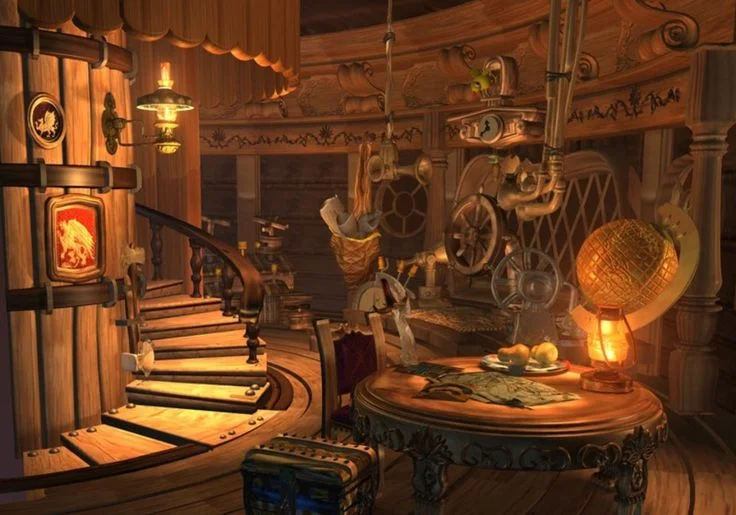Reader Requests: Interest in the Mundane
/TheGr8Whoopdini Wrote:
"I'd like to see something about making mundanity entertaining and interesting. How in the world do you make a simple villager a compelling character in a world full of physics-busting elf-dorfs and time god avatars walking the earth when the occasion arises?"
I absolutely love this question, because it is quite the dilemma and I would dare to say that more often than not, it is handled incorrectly. Let's start by breaking this question apart into some manageable discussion pieces. First, why should we consider a mundane character? Second, How can we make a mundane character interesting? Finally, how do we contribute to stories and roleplay as a mundane character?
I would like to lead our analysis with the definition of the word "Mundane".
Merriam-Webster Wrote:
Mundane- 1. of, relating to, or characteristic of the world
2. characterized by the practical, transitory, and ordinary
A mundane character is simply an example of the average citizen of the setting. They are characterized by the traits of their peers and ultimately lead a practical and ordinary existence. This may sound terribly dull to most and makes an excellent segway into our first discussion question. Why should we consider a mundane character?
Mundane characters, when executed properly, are perhaps one of the most valuable additions to a roleplay community and serve to fulfill several archetypes of storytelling. Everyday, ordinary citizens are the cornerstone of immersion in any setting. I believe Syndrome said it best with "When everyone's super, no one will be". A mundane character serves to draw a line in the sand and serve as a comparison to the more fantastic heroes and obstacles that may start flying. That "Time God Avatar" becomes much more awesome when it is compared to the 5'8 butcher that doesn't reach its ankle. You are a mirror to those around you, and the effects on perception can be quite drastic. Mundane characters also serve to fill holes in roleplay. The hero has to eat, and he probably didn't learn to cook while he was meditating for 14 hours a day at the monastery. This is where the cooperative aspects of roleplay really begin to shine, by allowing your mundane character to supplement the dynamic around them. Mundane characters also serve as a powerful motivator, having thoughts and feelings of their own, but needing assistance to function outside their realm of familiarity. Relationships between mundane and fantastic characters can serve as the fulcrum that moves entire stories, because every once in awhile a hero needs someone to save, to worry about, and bait our narrative hooks.
"You know what I love about this job? The excitement..." -Moe (The Shadow)
How do we make the everyman an interesting character, both to play and to interact with? The trick is to make them realistic, relatable, and reliable. Mundane characters are ultimately creatures of practicality, we all are, and it is this nature that will define the character. First, you will want to choose what the character does. This can be anything from a hobby to a trade, but despite how much we may not want to admit it, most people are defined to some degree by what they do for a living. After you have chosen a task or profession, research it to death. You will want the fine details to really give some depth to your character. They have a limited scope of experience, so you will want to flesh this out to drive home the idea "This is my thing, this is what I have dedicated my time to being really good at". Next, you will want to give them a personality. I like to start by giving the character a trait that is common to their race or profession, and one that sets them apart from it. You don't want to make the character so unique they become fantastic in their own right, just enough to make them memorable. This will make the character relatable as you slowly flesh out their personality through gameplay, while also creating a solid foundation to build from. Lastly, you will want to make your character look the part. Laborers have solid shoulders and calloused hands, fishermen smell like fish constantly, and the mortician probably dresses in clothing he snagged off the deceased. Appeal to the senses and let other players try to pick up on your character's background with deduction, this will help create a more memorable first impression. Remember that your character is still a person with feelings and ambitions all their own, be sure to reflect these and pursue them and you will be on your way to playing an entertaining yet average joe.
Now, lastly, how do these characters contribute to a story? A mundane character can fill numerous archetypes, from the character in distress to the instigator of the ever-popular angry mob. Your character will serve as the voice of public opinion, an indicator of what those other faceless npcs might be thinking, and giving this voice some weight through relatability. They also serve to fill and color the time in between more fantastic adventures by simply practicing their craft or sharing the local gossip. If they are truly unfortunate, they may even be brought on some wild adventure to serve as a stark contrast to the dangers the characters face. The purpose of the mundane character is to contrast the fantastic and put in perspective that which may be faced to the point of feeling commonplace. When the mundane character is faced with gods and demons they react with realism, fight or flight, and the scarring afterwards. To answer the question, a mundane character is most compelling when they are portrayed realistically. The contrast sells the story.
This is Ma1function, signing off until next time.












![Almighty Allen [Featured Artist]](https://images.squarespace-cdn.com/content/v1/55e49864e4b01d0dc78ba129/1494016363924-BAS6WH35KFUSQOCCO4RR/X8YeVUb.jpg)

![Slain by Syrena [Featured Artist]](https://images.squarespace-cdn.com/content/v1/55e49864e4b01d0dc78ba129/1489542756189-19DYL4NJ7L1HWG9QJBC6/ss10.jpg)